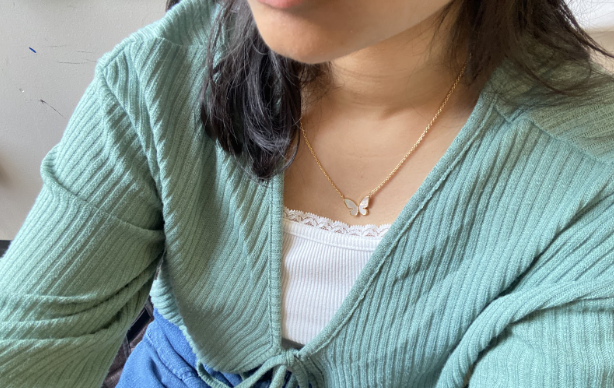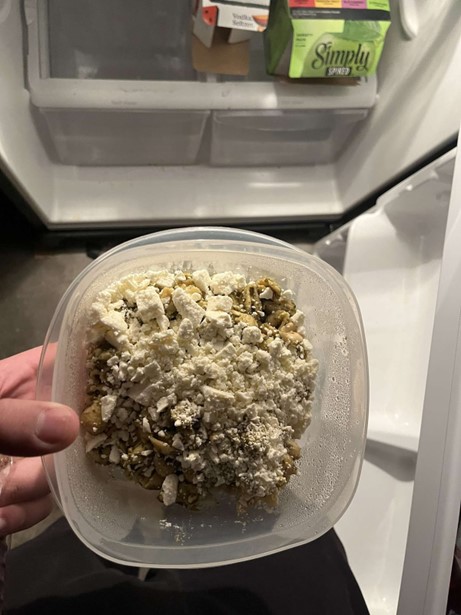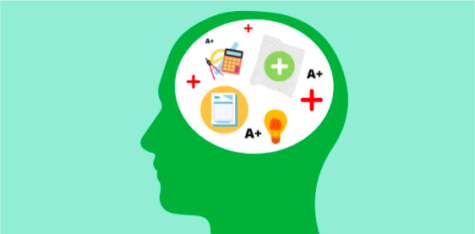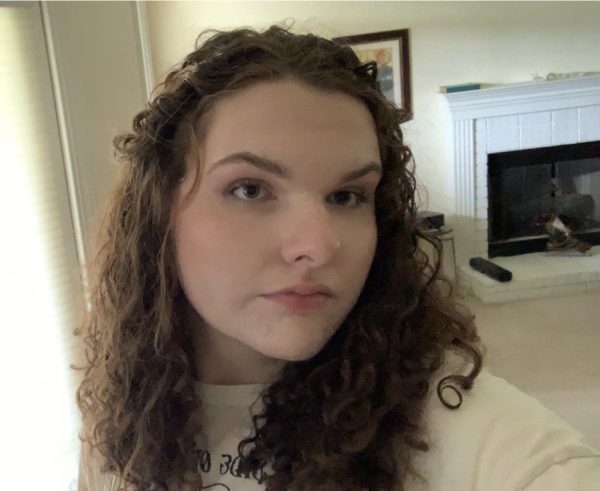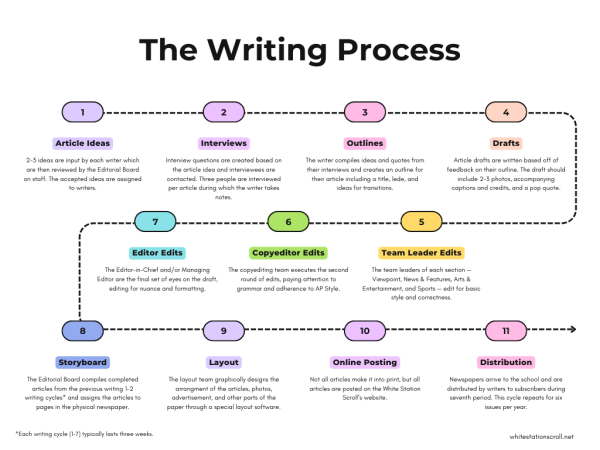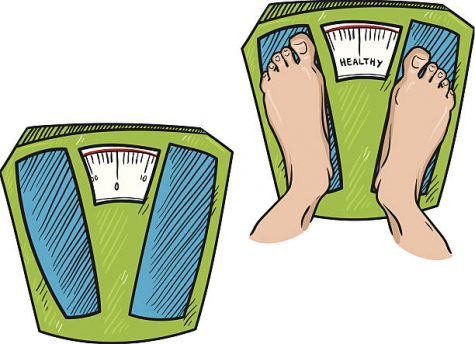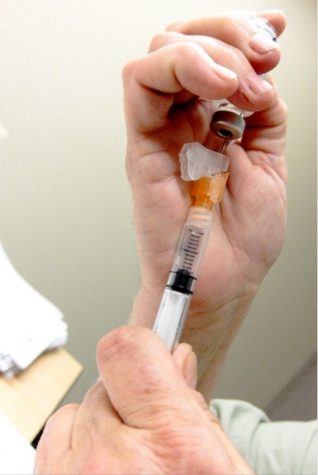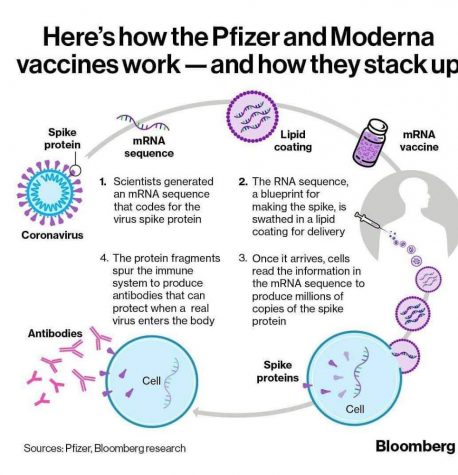Eating disorders: more than skin deep
Two sources who have experienced eating disorders wish to remain anonymous and shall be referred to as Source A and Source B.
‘Beauty is more than skin deep,’ ‘beauty comes in all shapes and sizes’ and ‘it’s what’s on the inside that matters,’ along with other affirmations of body positivity are common in an age of inclusivity and empowerment. But, if you have an eating disorder, words such as these may not be as effective. Eating disorders are more than the stereotypical desire to be skinny or dissatisfaction with one’s appearance; they are a mental health disorder, the deadliest in the world.
Eating disorders can affect anyone regardless of race, gender or age, and they can develop in those as young as elementary schoolers. Although the reasons behind why one develops an eating disorder vary, a common culprit is diet culture, which according to behavioralnutrion.org, is “the glorification of losing weight at all costs.”
“… I think [diet culture] has a direct impact from a very young age in how a child is viewing themselves, their value, their worth, because we’re seeing so many images that are flooding television and social media and anything that children can get their hands on, kind of subconsciously informing them that ‘this is what beauty is,’ and if you’re outside of that, then you’re contrary to beauty or beautiful,” school social worker Erin Herrington said.
As elementary school children grow up and start exploring social media, they are exposed to the standards of ideal body types oftentimes represented by celebrities. Although body positivity and diversity of models are on the rise, social media and pop culture can reinforce the desire to fit the ideal beauty standard.
“… Social media, the filtering of pictures, … the ‘this is how you’re supposed to look’… puts too much emphasis on how we look to someone else versus how we look and view ourselves,” school counselor Heather Heaston said.
While some people’s eating disorders derive from diet culture and the often unreachable goals that come with it, others develop a disorder for different reasons. In some cases, eating disorders are a method to cope with a loss of control in life.
“‘I can’t control this, but I can control how much food [I] intake or if I refuse to eat or if I decide to eat more,’” Herrington said. “… Not necessarily the only contributor, but stress related to academics, or the expectation of getting into college, a high ACT, high performance in sports, looking the part for a certain [role] in theater … the stress of the academic expectation and rigor can contribute to the disorder.”
With daily stressors, some students turn to food for comfort—even with the knowledge of potentially negative consequences. One student who has sought food out as a source of comfort, wishes to remain anonymous.
“It does make me feel bad, because I do understand the amount that I’m consuming and how not healthy [the foods] are, because I do crave either sweeter things or things that are little bit heavier and carbohydrates,” Source A said. “… I know that personally, it really does actually take away from my self-confidence knowing that all I’m doing is putting bad stuff into my body, but [also] knowing that I don’t want to stop.”
While food relieves stress for some, it causes stress for others. Food is fuel and it is needed for life, but for students who struggle with not eating enough, daily life can be impacted beyond the physical aspects. A student whose relationships were affected by not eating enough, wishes to remain anonymous.
“Because of my culture, food has always been an important part of it,” Source B said. “… eating—especially certain foods—it’s like a bonding thing especially [with] family. It brings you close together … when I was struggling with eating properly, it had an impact on my mind and it was because I didn’t feel connected with the people around me or the people that I cared about most.”
The academic, social, and emotional lives of those with eating disorders can be altered and it is not uncommon for other mental health disorders such as anxiety and depression to develop along with an eating disorder.
“The more you engage in those secretive behaviors, the more time gets taken up with that and the less and less attention you have to focus on the things you really need to be focusing on like your schoolwork,” school psychologist Julia Huckabee said.
Hiding eating disorders from family and friends can create stressful environments and strain relationships. Maintaining the secrecy can also be a struggle for the individual, as source B recalled.
“The hardest part was trying to hide it or act like you were okay,” Source B said. “My dad would always stop or get me breakfast in the morning or … make me something really nice for lunch and I would just feel terrible sitting there seeing all this food [and I knew that] people put time and care into it and I couldn’t even bring myself to eat it. It definitely made me feel really wasteful, but that was one of the things that pushed me to get better, because I felt so bad, just letting good things go to waste.”
Some individuals feel the pressure of others not believing that they have an eating disorder and others thinking they do not fit the typical mold of a specific disorder. In the media, eating disorders can be displayed in stereotypical lights and their complexity is not always explained.
“No matter what, you’re the normal one,” Source A said. “And that’s really difficult to think about, especially for people that have anorexia … there’s a lot of body positivity for heavy people or people that are medically overweight, but I think that there’s a lot of underrepresentation for people with anorexia … because everyone feels like ‘oh, it’s good to be skinny,’ but if you’re not comfortable with your body, I think of course, first understand that you’re beautiful no matter what, but second if you want to take steps to change of course seek medical help, seek a nutritionist.”
Getting help is one of the first steps to recovery. An email to a counselor can start the process of recovery, which can involve attending a treatment facility such as the Fairhaven Treatment Center.
“There are programs [where] you work and understand that even though you are not actively experiencing your disorder, you will always be a recovering individual,” Herrington said. “… it’s not a point or period at the end, It’s just a long run on sentence that you keep learning how to improve and you just add new nuances and new things that help it turn into this beautiful story.”
Recovery can be made easier with the help of others motivating those with eating disorders and consistently bringing them up—not down. But for deeper change to occur, looking at their own mindset and seeking to change that rather than their body can be more beneficial in the long run.
“I look at food differently, I don’t think of it as such a negative thing anymore and I do enjoy [it]. I think of it as positive,” Source B said. “[It’s] nourishment for my mind, body, and soul—it’s a connection to other people.”
By educating oneself, understanding what eating disorders really are and spreading positivity, friends and family can guide those with eating disorders to brighter futures.
“Learn about the triggers, learn about the best statements to make and avoid some things like ‘what’s wrong with you’ and ‘you just need to’ and being demanding … [instead try] asking questions,” Herrington said. ‘Do you need help?’ ‘Do you believe these behaviors are healthy?’ ‘How can I help you?’ ‘Can I go with you?’ … Instead of it being a problem, come at it with a solution focused mindset.”
With help from professionals and support from loved ones the journey to recovery can be closer than one might think and lead to healthier futures—mentally and physically.
“I genuinely see a really good future for myself, not only with body image, but also like for how other people see me,” Source A said. “ … I see that I’m working out—I’m already seeing results … I’m seeing just different of effects of different nutritional guidelines and schedules that I have to follow. And it’s giving me confidence that I will be very confident in my body in the future.”
Your donation will support the student journalists of White Station High School. Your contribution will allow us to purchase equipment and cover our annual website hosting costs.

